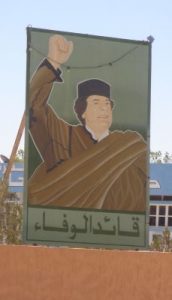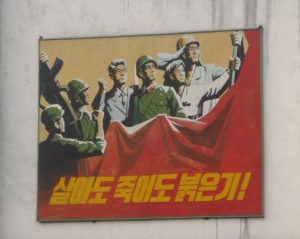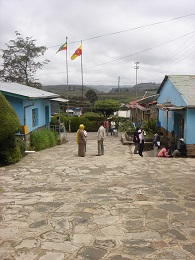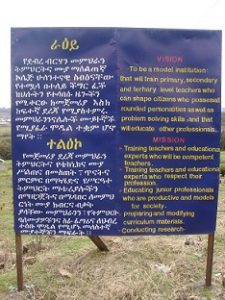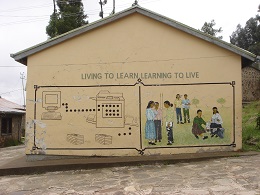
© CBS News
“It’s a disgrace, there’s never been anything like that. You could take third-world countries, just take a look, take third-world countries. Their elections are more honest than what we’ve been going through in this country. It’s a disgrace.”
So spoke President, now almost Ex-President, Donald Trump at a rally at Washington DC on January 6th. This was before the rally’s attendees launched an assault on the US Capitol while members of Congress were meeting there to certify Joe Biden becoming the 46th president and Trump’s successor.
Bravely, Trump used the pronoun ‘we’, which normally means ‘me’ as well as ‘you’, when he declared: “…we’re going to walk down Pennsylvania Avenue… and we’re going to the Capitol…” Then, bravely, he didn’t accompany his supporters when they marched off to confront and fight their way past the Capitol’s police force (many of whom, as it happened, were suspiciously reluctant to do their jobs). Instead, bravely, Trump headed back to the White House where, bravely, he watched the ensuing carnage on TV.
In his speech, Trump claimed that November 2020’s presidential election, when Joe Biden won 72 more electoral college seats and 7,250,000 more votes than he did, and which everybody from the Supreme Court to the Department of Justice – not to mention the judges who chucked out 60-odd lawsuits filed by Trump in protest – agreed had been held fairly, was even more fraudulent than an election held in a third-world country. Even more!
I guess I should credit Trump for using the term ‘third-world countries’, which is an improvement on his previous term for less-well-off parts of the planet, ‘shithole countries’. I doubt, though, if he’ll ever evolve to the point where he refers to them as ‘developing-world countries’, or even less-patronising terms like ‘low-and-lower-middle-income countries’, or ‘the global south’, or ‘the Majority World’.
As somebody who’s spent much time living in (what I’ll call) low-and-lower-middle-income countries, I have to say I’ve never seen a spectacle as humiliatingly ridiculous as the one in the Capitol following Trump’s rabble-rousing speech on January 6th. I’ve lived in North Korea under Kim Jong-Il and Libya under Colonel Ghaddafi, dictators whose perpetual self-aggrandisement led to some ludicrous sights indeed. But nothing I saw in those places compares to last week’s scenes, where American politicians fled from their chambers while doors buckled, windows imploded and police and secret-service officers were pushed back by an inexorable, invading tide of white supremacists, Nazis, militiamen, crackpot conspiracists and MAGA nutjobs.
It resembled the start of a zombie-apocalypse movie – the bit where a live TV broadcast, announcing the emergency and urging calm, is interrupted by the studio staff looking into the lobby and screaming off-camera, “They’re here! They’re here!” Though this wasn’t so much Dawn of the Dead as QAnon of the Dead.
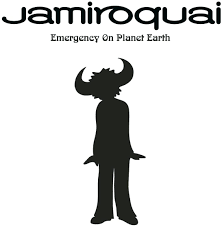
© Sony Soho Square
And during my time in what Trump thinks of as ‘shithole countries’, I’ve never seen performers from such a theatre of the absurd as those who were centre stage in the Capitol when, temporarily, the mob occupied it. The QAnon-shaman guy with the buffalo furs and horns and the painted face, resembling the figure on the cover of the 1993 Jamiroquai album Emergency on Planet Earth after it’d spent a night sleeping in a skip. The other guy with the furs, plus glasses and a dead beaver on his head, looking like the world’s shittest Davie Crockett. The guy in the bobbled ‘Trump’ hat who walked off with Nancy Pelosi’s lectern, now under arrest and subject to a thousand jokes on social media about when he’ll ‘take the stand’. The guy with the Santa Claus beard and the ‘Camp Auschwitz’ T-shirt, whom one right-wing idiot later tried to deflect criticism from on social media by suggesting he might actually be an ‘Auschwitz survivor’… Hold on, though. Someone celebrating Auschwitz in 2021? That’s not absurd. That’s frightening.
Indeed, after the initial absurdities broadcast on the initial news reports, there came more frightening accounts of what’d happened. A police officer died of injuries sustained while being bludgeoned by a fire extinguisher. Another officer, a black man, had to offer himself as bait and lure a racist mob away from the senate entrance, so that those inside got a few extra minutes to evacuate. (While these things were happening, other officers, clearly sympathetic to the mob’s intent, were dismantling barriers to let them pass and posing for selfies with them.) Journalists were attacked. A makeshift noose was strung up outside. Masked figures roamed around carrying zip-tie handcuffs, apparently planning to take hostages.
Meanwhile, there was the jaw-dropping contemptibility of Republican politicians such as Ted Cruz, the Texan cowpat, and Josh Hawley, a man who physically and spiritually resembles Miguel Ferrer’s scumbag executive in Robocop (1987). Even after the insurrection, they kept on parroting Trump’s honking-mad claims about election fraud and they voted against Biden’s certification. Obviously, this is because they want to secure the support of Trump’s deranged base when they launch their own bids to become president in 2024. With Cruz and Hawley, it’s not so much ‘we the people’ as ‘me the people’.
I suppose I should react to this with schadenfreude. The USA has a long history of promoting revolutions and insurrections in other countries. The most notorious of many examples were the overthrow of Iranian Prime Minister Mohammad Mosaddegh, which the USA and its little sidekick the UK orchestrated in 1953 (and which begat the Shah of Iran, which begat the 1979 revolution, which begat the Ayatollah, which begat the Iran we know and fear today), and the 1973 coup d’état it engineered against President Salvador Allende that resulted in the murderous, fascistic rule of General Pinochet. Now it’s embarrassingly fallen prey to an attempted coup of its own.
Still, all the sanctimonious blather about the USA being the mother of democracy and the shining light for other nations to follow, often propagated by Hollywood movies, does worm its way into your consciousness no matter how hard you try to resist. So although the idea of American democratic righteousness is more myth and propaganda than reality, seeing its political heart get trashed by Jamiroquai-shaman guy, beaver-on-head guy, lectern-guy, etc., was rather sad.

From twitter.com / schwarzenegger
Incidentally, if the notion that the USA is the great champion of democracy is cheesy guff, it was appropriate that a few days later Arnold Schwarzenegger, one of cinema’s greatest proponents of cheesy (though enjoyable) guff, went viral in a video in which he praised American democracy. Arnie even likened its resilience to the sword of Conan the Barbarian. The sword’s blade, he explained, becomes stronger the more it’s tempered by punishment. (Sorry, Arnie, but I seem to remember Conan’s mantra being to ‘crush your enemies, see them driven before you and hear the lamentations of their women’. Which doesn’t sound terribly democratic to me.)
But returning to the topic of low-and-lower-middle-income countries… From 1999 to 2001 I worked in Ethiopia. When I arrived there, most Ethiopians’ experience of the outside world was via an antiquated TV set kept in a wooden cabinet in the neighbourhood coffee shop or bar, which gave them access to two terrestrial channels. The channels’ output seemed to consist mainly of clips of traditional Ethiopian dancing, English football matches that’d taken place three weeks earlier, and reruns of Jake and the Fatman (1987-92).
Within two years, however, satellite TV had arrived with a vengeance. Suddenly, those same people were being exposed daily to dozens, if not hundreds of channels crammed with glossy adverts and pop videos dripping with opulence – fancy cars, penthouses, jewellery, designer clothes. It was all phoney nonsense, of course. Most people in other countries didn’t live like that. But how was your average Ethiopian expected to know? And how, I wondered, would this impact on the psychology of a people whose country was then, and still is today, pretty impoverished? (In 2018 its GDP per capita was ranked 167th in the world.)
As it turned out, I should have been more worried about the Americans and how they’d cope with rapid advances in communications technology and especially with the sudden arrival of social media. For now we have vast numbers of Americans taking Trump’s twitter ravings as the gospel truth. Also, vast numbers of them believe the insane drivel that is the far-right QAnon conspiracy theory, whereby Trump is battling a worldwide network of paedophilic, baby-eating Satanists who control everything, especially everything that’s liberal.
Whoever Biden appoints as a successor to Betty DeVos, Trump’s wretched Secretary of Education, will urgently need to promote 21st century skills like critical thinking and digital literacy in the nation’s schools. Otherwise, thanks to social media and the Internet, the USA will collectively disappear down an extremist rabbit hole or get locked into a far-right echo chamber.
Ironically, Trump, so disdainful of ‘shithole countries’ in Africa and elsewhere, is probably closest in his vanity, bluster and puffed-up preposterousness to some of the infamous dictators who ruled certain African nations after the end of colonialism. I’m thinking of Zaire’s Mobutu Sese Seko who, while most of his subjects lived in poverty, built a palace that became known as ‘the Versailles of the jungle’, travelled using a fleet of costly Mercedes-Benz motor cars and hired Concorde for shopping trips to France. What Trumpian things to do. I’m also thinking of Uganda’s Idi Amin, described in 1973 by his country’s American ambassador as ‘racist, erratic and unpredictable, brutal, inept, bellicose, irrational, ridiculous and militaristic.’ That sounds like Trump down to a T.
By the way, talk of Idi Amin makes me think of the 2006 movie The Last King of Scotland, based on the 1998 novel by Giles Fodden. In that, a hapless, vain and dim Scotsman, played by James McAvoy, cosies up to Amin, played by Forest Whittaker, at the start of the latter’s career and soon gets more than he bargained for.
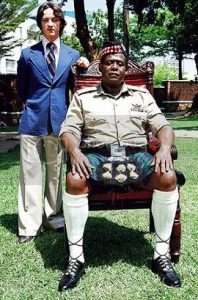
© DNA Films / Film4 / Fox Searchlight Pictures
Thinking of The Last King of Scotland’s imaginary scenario, I’m somehow reminded of the real-life scenario here:

© Daniel Biskup / The Times / News Syndication
Anyway, America, one week has passed since the Capitol insurrection. You’ve got just one more week to go before Biden gets inaugurated and the Orange Blob, hopefully, is cast off into powerlessness and obscurity.
You’re halfway out of Crazy Town. Hope you make it. Good luck.


